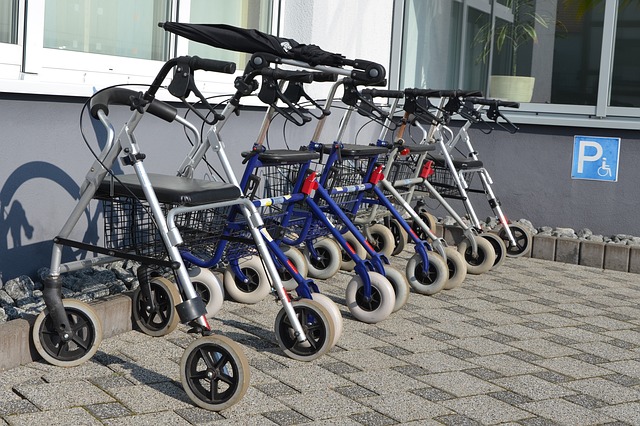It is estimated that over 60% of older men and 40% of older women are not meeting their daily vitamin K requirements. A recent study evaluated the association of low vitamin K on mobility limitation and disability in older adults.
Vitamin K is an essential nutrient, which means it must be obtained in the diet or from vitamin supplements. Dark leafy green vegetables and vegetable oils are high in vitamin K. Researchers have discovered that many older adults are not getting enough vitamin K. The effects of low vitamin K have been under investigation.
Previous studies have found links between low vitamin K and chronic diseases such as cardiovascular disease, knee osteoarthritis, and inflammation. These chronic diseases can lead to mobility limitations and disability in older adults.
Researchers from the USDA Human Nutrition Research Center on Aging in Boston, Massachusetts, conducted a study to evaluate the association between vitamin K status and mobility limitation and disability in older adults. The results of this study were published in Journals of Gerontology: Medical Sciences.
The study population included 635 older men and 688 older women with an average age of 74.6 years. Researchers collected blood samples and checked the levels of two markers of vitamin K status: plasma phylloquinone and dephosphouncarboxylated MGP (ucMGP). A mobility assessment was also conducted every six months. Mobility limitation was defined in this study as two consecutive reports of having any difficulty walking a quarter mile or climbing 10 steps. Disability was defined as two consecutive reports of a lot of difficulties walking a quarter mile or climbing 10 steps.
Participants with less than 0.5 nanomoles per liter (nmol/L) of plasma phylloquinone were significantly more likely to develop mobility limitation and disability. People with a plasma phylloquinone level of at least 1.0 nmol/L had a lower risk of developing mobility limitations or disability. People with plasma levels less than 0.5 nmol/L were almost 1.5 times more likely to have mobility limitation and nearly twice as likely to have a disability compared with those with levels above 1.0 nmol/L.
The results of the study also showed that levels of plasma ucMGP were not associated with mobility limitation. Disability was not associated with high or low plasma ucMGP. However, people with levels between 297 to 582 picomoles per liter (pmol/L), considered medium levels, had more reports of disability.
This is the first study evaluating the association between low vitamin K and the risk of mobility limitations and disability in older adults. The researchers demonstrated that an association may exist between low vitamin K status and mobility limitation and disability. Although further investigations are necessary, these findings suggest that vitamin K supplementation may help older people maintain mobility and independence.
Written by Jessica Caporuscio, PharmD
Reference: Shea MK, Kritchevsky SB, Loeser RF, et al. Vitamin K status and mobility limitation and disability in older adults: The Health, Aging, and Body Composition Study. J Gerontol A Biol Sci Med Sci. 2019
Image by <a href=”https://pixabay.com/users/congerdesign-509903/?utm_source=link-attribution&utm_medium=referral&utm_campaign=image&utm_content=521891″>congerdesign</a> from <a href=”https://pixabay.com/?utm_source=link-attribution&utm_medium=referral&utm_campaign=image&utm_content=521891″>Pixabay</a>



